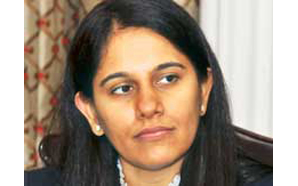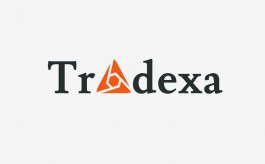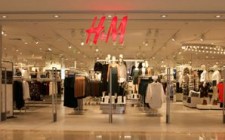We're expanding retail network in southern and western India: Avani Davda
By Dinesh Jain | October 25, 2016
Interview with MD, Godrej Nature's Basket
 Avani Davda, former CEO of Tata Starbucks, took over as the managing director of Godrej Nature's Basket, the retail chain of the Godrej Group, in May this year. Five months into the new job, Davda tells Viveat Susan Pinto that she’s still learning the nuances of the business and trying to find out the ways in which there can be sustainable and profitable growth. Edited excerpts:
Avani Davda, former CEO of Tata Starbucks, took over as the managing director of Godrej Nature's Basket, the retail chain of the Godrej Group, in May this year. Five months into the new job, Davda tells Viveat Susan Pinto that she’s still learning the nuances of the business and trying to find out the ways in which there can be sustainable and profitable growth. Edited excerpts:
Retail is part of the Godrej Group’s overall consumer push. How is Godrej Nature’s Basket contributing to it?
The Godrej Group is ambitious about where it wants to take its consumer businesses. Between Godrej Industries and Godrej & Boyce, we have Godrej Interio (branded furniture division), B:Blunt (salons) and Godrej Nature’s Basket (food and grocery chain). The three chains span the economic spectrum and Godrej Nature’s Basket is at an interesting point right now. We have 37 stores in five cities, plus an online presence. We’re truly omni-channel in that sense. We’ve been able to build a great connect with consumers. Our loyalty numbers are powerful. As we look into the future, we’re clear that we want to build a sustainable and profitable business. Food & grocery is particularly challenged in India because the margins are thin. What works for us is that we play at the top end of the market. We enjoy very high margins. The challenge for us would be in scaling up this business, penetrating existing markets, and taking the brand to another level where it will stand for consistency of service and product quality.
How do you propose to do this? The Godrej Group has been slow in scaling up its food and grocery division...
Not any more. We are expanding the (offline) retail network mainly in the southern and western parts of India. It will be a clustered approach or a hub-and-spoke model consisting of small neighbourhood stores and flagship outlets within the two regions. We are also building our supply chain so that we can service our outlets and also drive operational efficiencies. The good thing about Nature’s Basket is that consumers get hooked to it once they see our assortment of products. The strategy would be to try and build on this strength both online and offline. So, apart from imported products, we are building our own food labels as well as tying up with local manufacturers of premium, niche food products. The idea is to have a wide and interesting assortment; stuff that you might not find in a regular supermarket.
We are also tying up with central kitchens, for instance, to curate food recipes for our consumers. This will be called Nature’s Kitchen. We’ve already soft-launched this in Mumbai. You’ll see more of this by November-December. By early next year, this should be available in all our stores.
What is the percentage of revenues coming from imported products and private labels? And, what kind of growth do you see here?
Imported products give us a third of our revenues. Private labels in terms of revenue contribution are in single-digits now. But, it is growing fast and by the end of this year it should be in the early teens. We see it touching 20 per cent in the next few years. The rest comes from our fresh range such as fruits and vegetables, bakery, dairy, meats & cheese. This gives us about 20 per cent of our revenue. Then there our niche domestic products, which are also a significant contributor to revenue. All this will grow as we go forward.
How are you growing the business online? There were big plans for Nature’s Basket online following acquisition of e-grocer Ekstop last year. What is the status?
Online is a platform that allows us to get into markets where we’re not physically present with our stores. In that sense, it becomes an important channel in terms of improving penetration for us. It is also an evolving channel and one that shows enormous promise, which is why we acquired Ekstop last year and merged that with our existing platform. Since the acquisition of Ekstop, we’ve doubled revenue contribution coming from online. It is 10-11 per cent now from five per cent earlier. As we increase our retail footprint (offline), online will assume an even greater importance because it will allow us to grow the business exponentially. The overall objective for us is to build the retail work, overlay the online omni-channel play, and build solid brands.
Will you bring down the price points to make your products more accessible to consumers?
Price is a lever that we will pull as we grow our own food labels. Food & grocery as a vertical will grow and consumers will exercise their choice for good and unique products. Developing our own brands will not only allow us to address this need; we will also do it keeping in mind the purchasing power of consumers.








